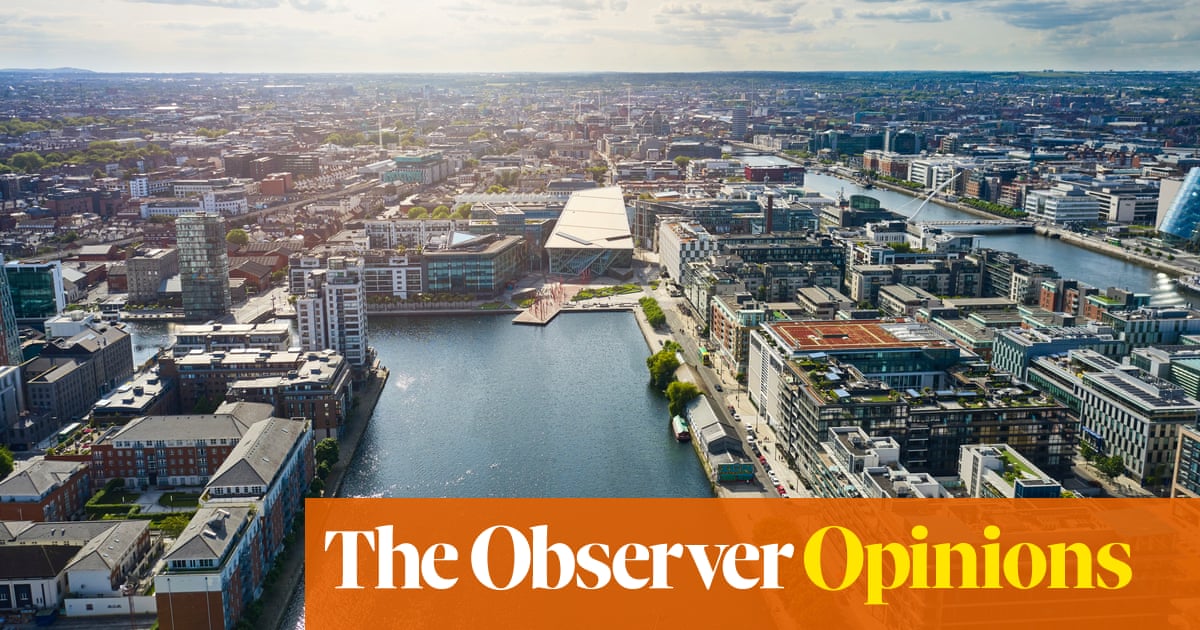In 1956, a chap named TK “Ken” Whitaker, an Irish civil servant who had trained as an economist, was appointed permanent secretary of the finance department in Dublin at the relatively young age of 39. From his vantage point at the top of his country’s treasury, the view was bleak. The Irish republic was, economically and socially, in deep trouble. It had no natural resources, very little industry and was mired in a deep depression. Inflation and unemployment were high. Ireland’s main export was its young people, who were fleeing in thousands every year, seeking work and better lives elsewhere. The proud dream of Irish independence had produced a poor, priest-ridden statelet on the brink of failure.
Whitaker immediately put together a team of younger officials who did a critical analysis of the country’s economic failings and came up with a set of policies for rescuing it. The resulting report, entitled First Programme for Economic Expansion, was published in November 1958, and after Seán Lemass was elected taoiseach (prime minister) in 1959, it became Ireland’s strategy for survival.
At the core of it were a number of key propositions. Ireland would have to embrace the idea of free trade, which meant encouraging competition and ending the protectionism that had been the hallmark of Irish economic policy under Lemass’s predecessor Éamon de Valera (whose economic philosophy had once been satirised as: “Burn everything English except their coal”). Most importantly, though, the strategy required that, henceforth, Ireland would have to be welcoming to foreign capital, which essentially meant being nice to multinationals – giving them generous tax breaks, assistance in finding locations for building and generally bending over backwards to attend to their needs.
Whitaker’s was a bold strategy, but it worked. (Of course, joining the European Economic Community in 1973 didn’t hurt, either.) The republic was transformed from being deeply troubled socioeconomically to an apparent paradigm of neoliberal prosperity. Foreign corporations (mostly American) flooded in. Liebherr, the German crane manufacturer, was an early arrival. Apple followed in 1980. And then came the pharma companies. (Improbably, Viagra is manufactured in what was formerly holy Catholic Ireland.) And then, after them, came the tech giants, many of which now have their European headquarters in Dublin.
If any of these behemoths had entertained doubts about coming to the Emerald Isle, two things would have reassured them. The first was Brexit: these companies needed to be in the EU. The second was the way the republic’s government rushed to the aid of one of their brethren: Apple. When the European Commission concluded in 2016 that the company had been wrongly allowed a €13bn tax holiday by the Irish authorities, not only did Apple successfully appeal against the decision in 2020 but so too did the republic’s government. Just ponder that for a moment: a small country refusing to accept a payout of €13bn. (The commission has appealed the decision, by the way, and it looks as though Apple may still have to pay up – plus €1.2bn in interest – with the money now being held in an escrow fund by the Irish government.)
The subliminal message to corporate bosses, though, was this: “If you run into trouble with the EU, we’ve got your back.” This message may even have reached Beijing. At any rate, it’s intriguing to learn that – just at the time the US and the EU are thinking about cracking down on TikTok (whose owner ByteDance, coincidentally, has a base in Dublin) – the Irish government is welcoming Chinese-owned companies such as the popular e-commerce apps Temu and Shein, as well as tech corporation Huawei.
It may live to regret this, but for now isn’t it trebles all round? Only up to a point. On the one hand, the influx of foreign capital to Ireland has been transformative. Tax revenues from the resident tech companies have, on paper, made the country rich. The government has money coming out of its ears: it’s predicted to have a surplus of €65.2bn by 2027.
On the other hand, Ireland faces some challenging problems. Corporate wealth, for example, has done to Dublin what Silicon Valley did to San Francisco – transformed a once livable city into an insanely unaffordable metropolis. There’s a massive shortage of affordable housing and an associated homelessness crisis: nearly 12,000 people in emergency accommodation and average monthly rents of €1,468; plus a creaking public health service (accompanied by glossy, expensive private healthcare).
And it’s the only country in Europe with a population explosion on its hands: current demographic trends suggest that the republic, whose population was 4.7 million in 2016, will have somewhere in the region of 5.5 million to 6.7 million people by 2051 and that by the end of this century there will be 10 million people living on the island of Ireland as a whole.
So here’s the paradox. Whitaker’s strategy has a produced a society apparently richer than his wildest dreams, with tax revenues big enough to build all the affordable houses the country needs, fund a world-class public health system, construct a mass-transit network that releases its capital city from gridlock, electrify everything – and more. And yet it’s governed by a coalition that appears unable to peer beyond the next election. Maybe it’s true that we get the governments we deserve.
What I’ve been reading
Games with frontiers
A terrific essay by Bruce Schneier is How the “Frontier” Became the Slogan of Uncontrolled AI.
Talking point
The Salvo, Vol 5 features a transcript of a fascinating interview by Gavin Jacobson of the New Statesman with the celebrated French economist Thomas Piketty.
Head in the cloud
The Staggering Ecological Impacts of Computation and the Cloud details what the anthropologist Steven Gonzalez Monserrate learned while working in huge datacentres.







